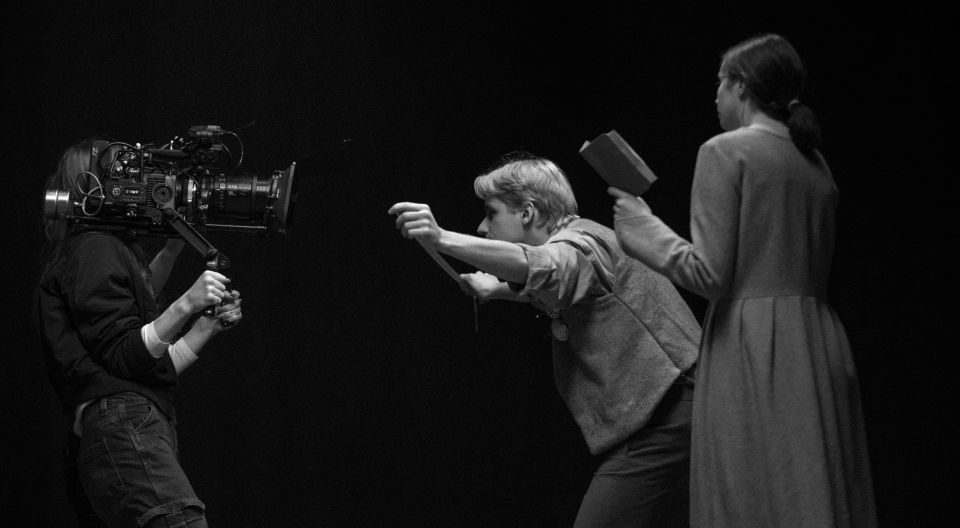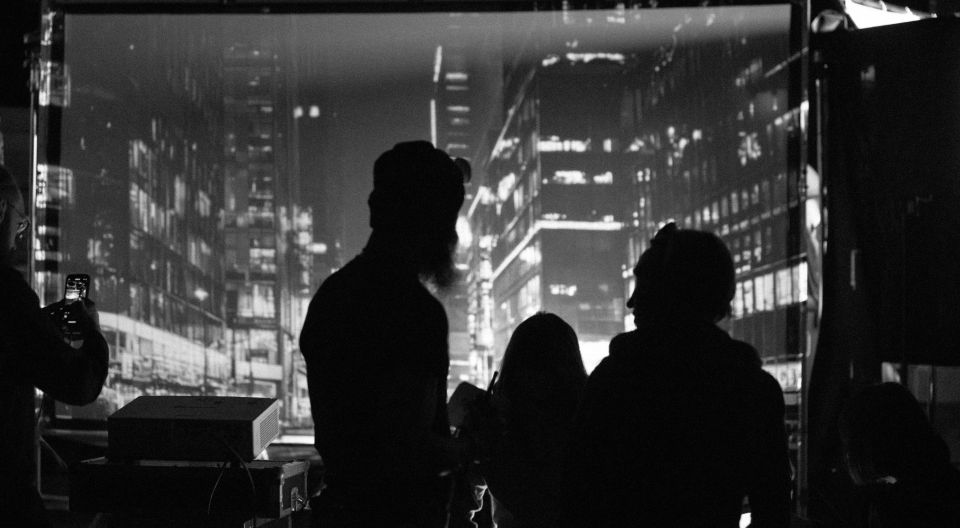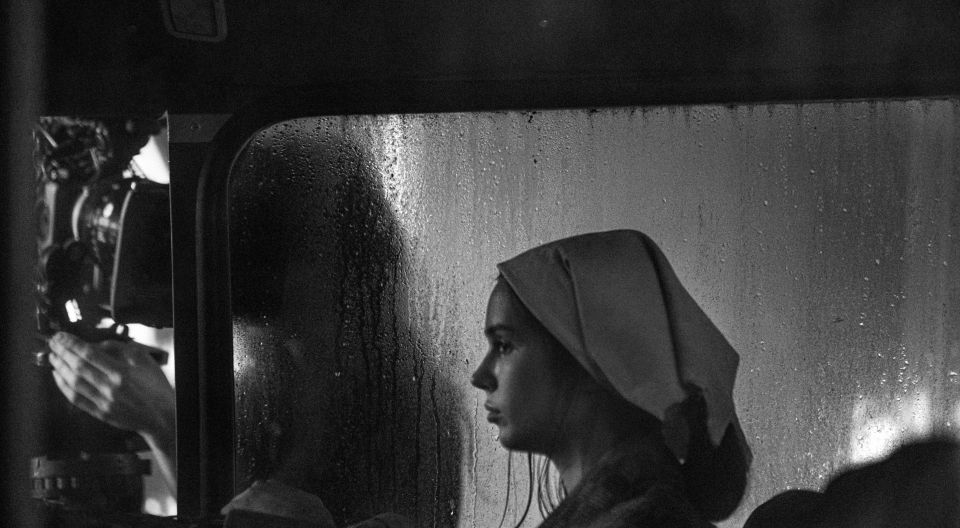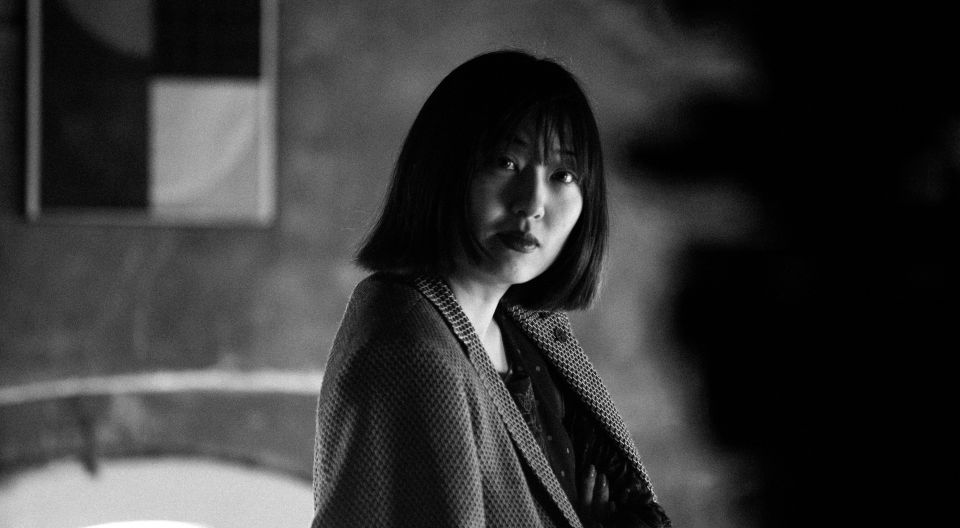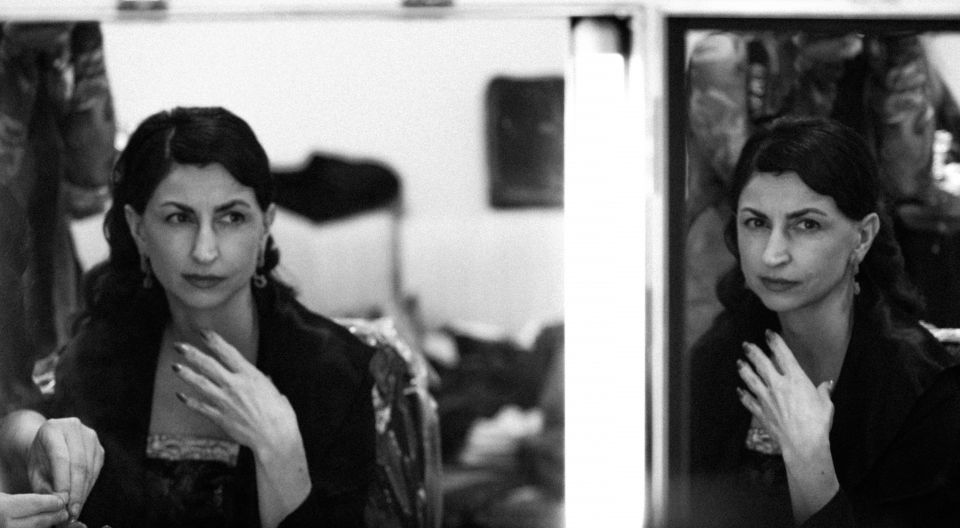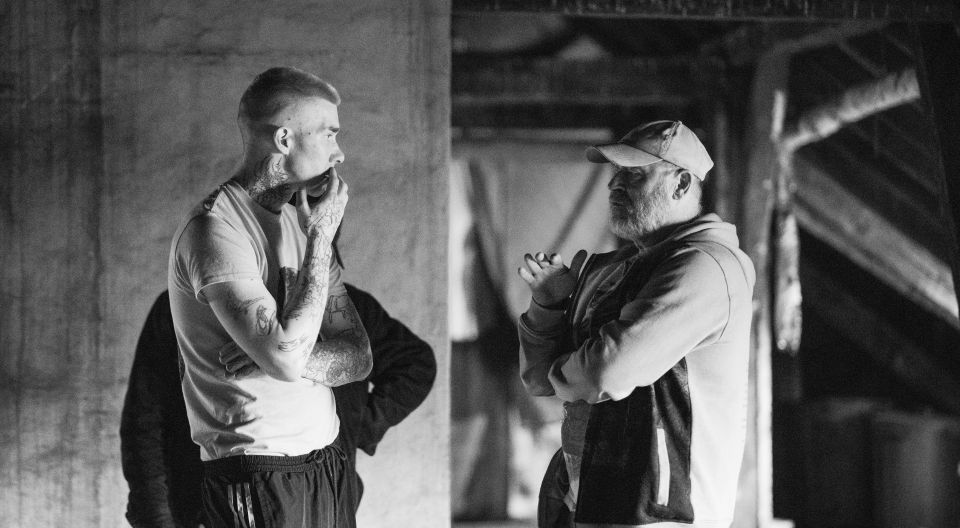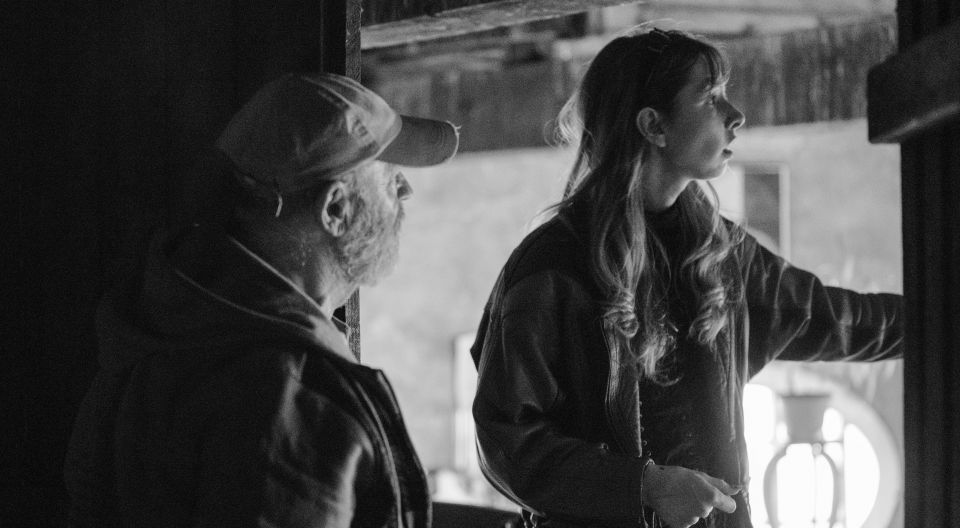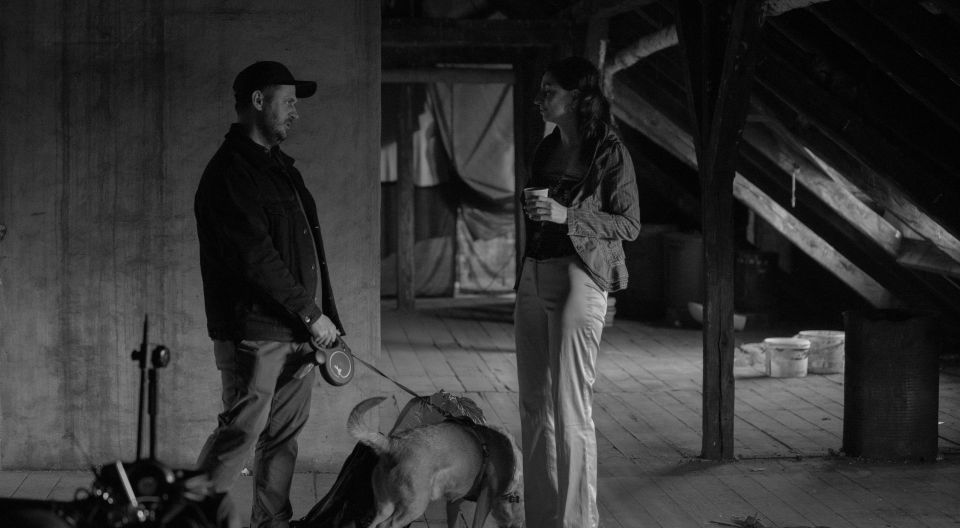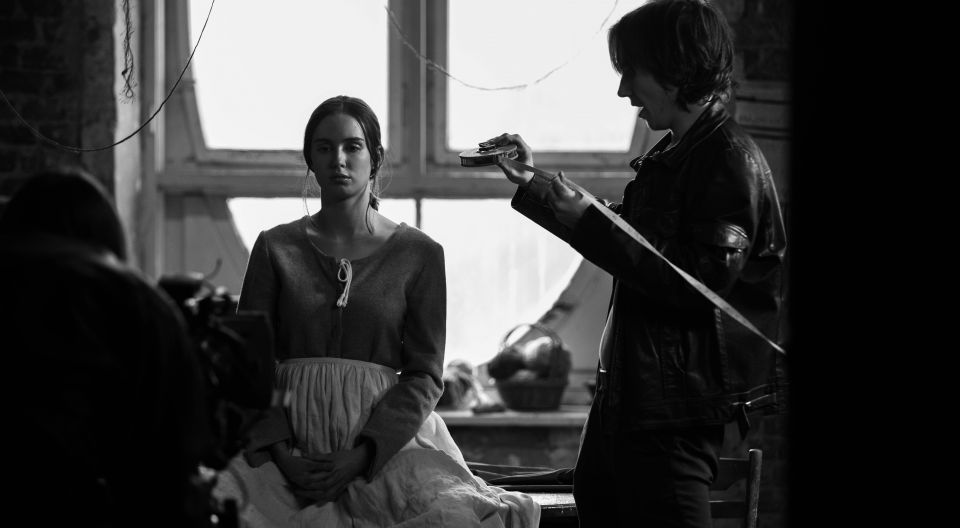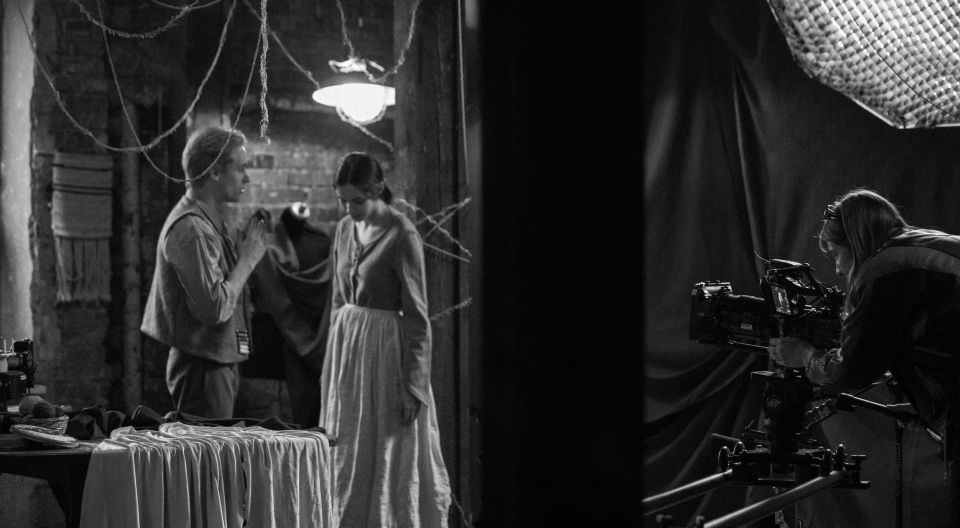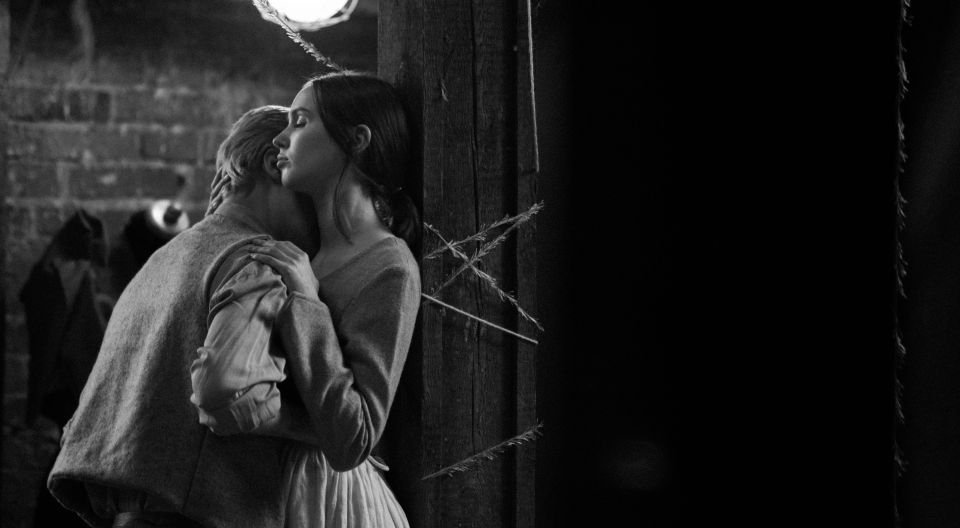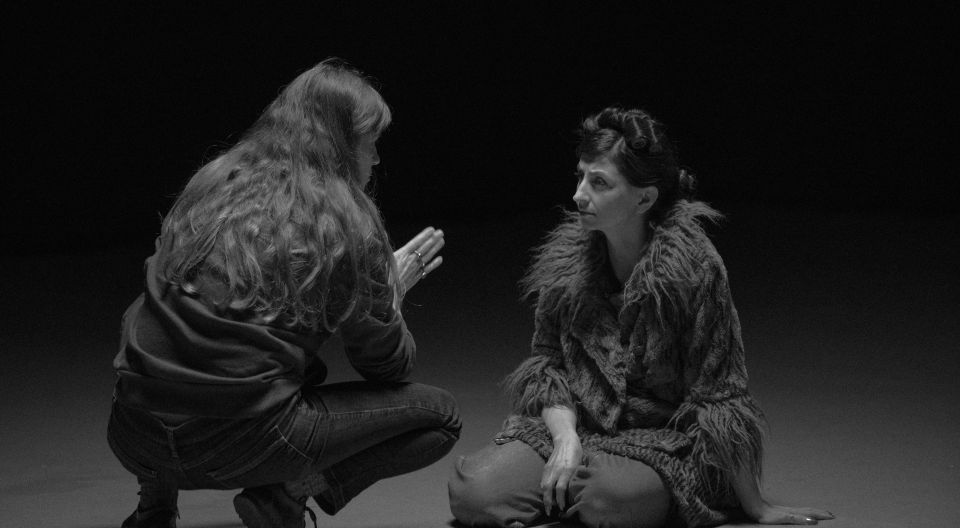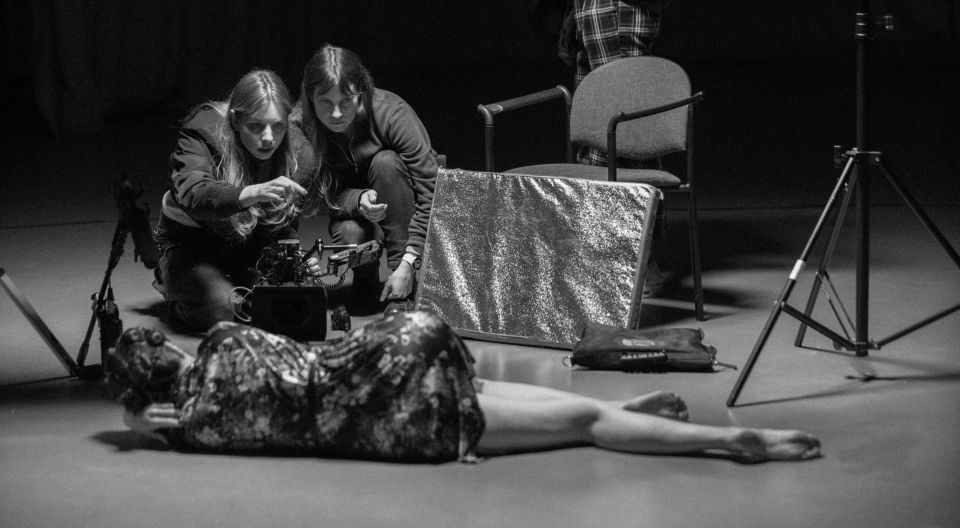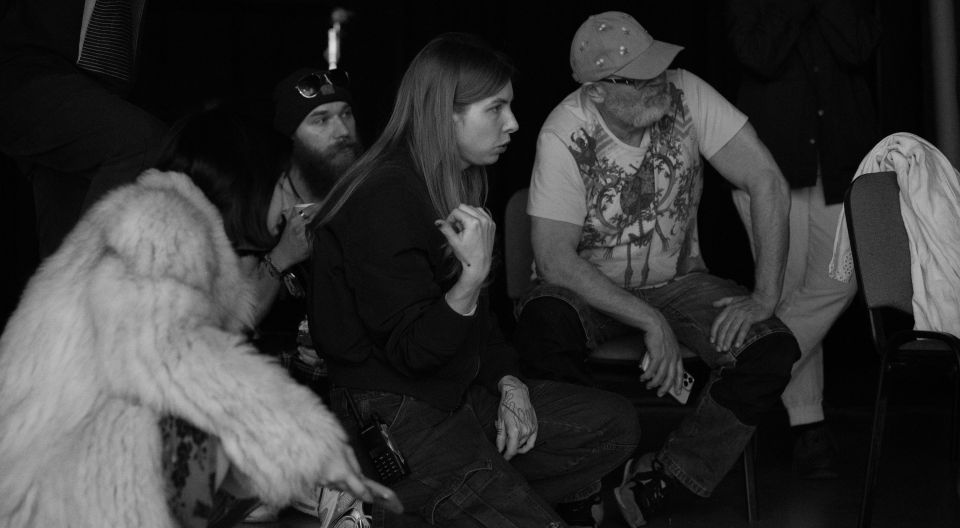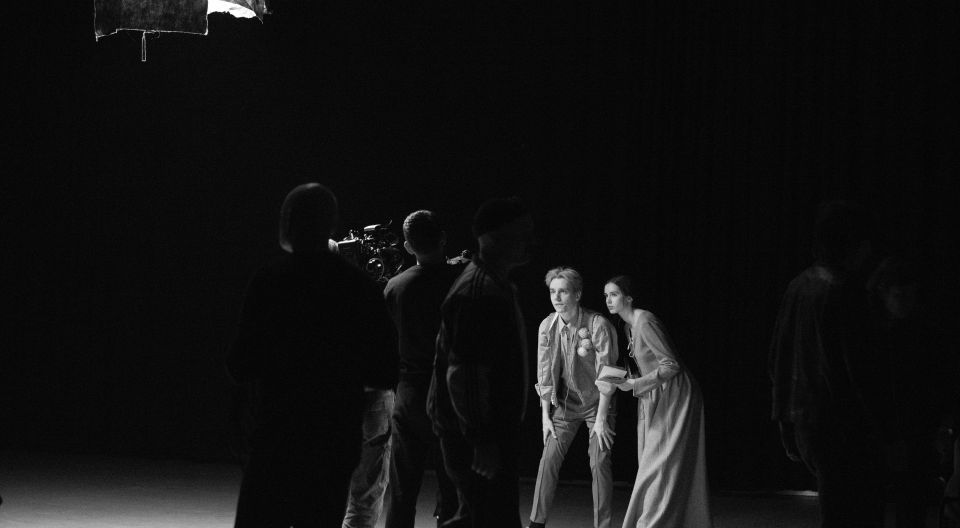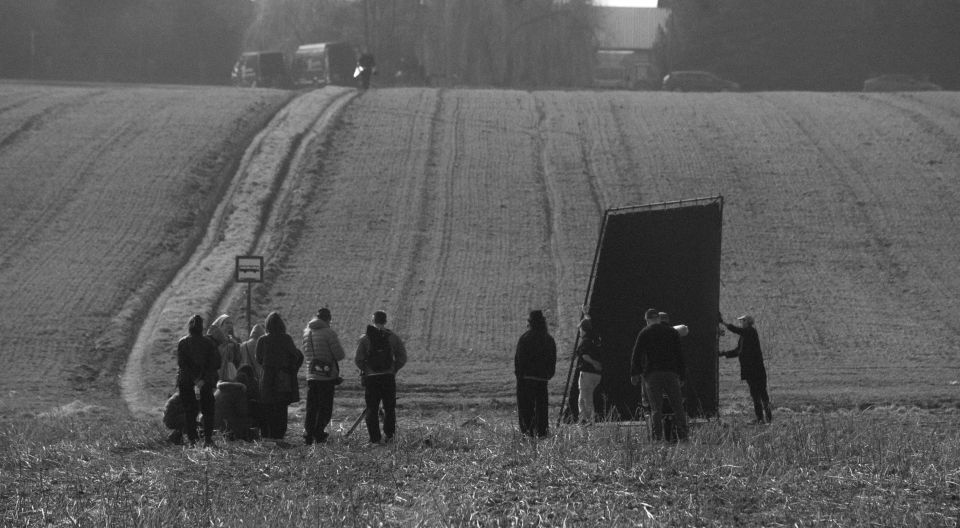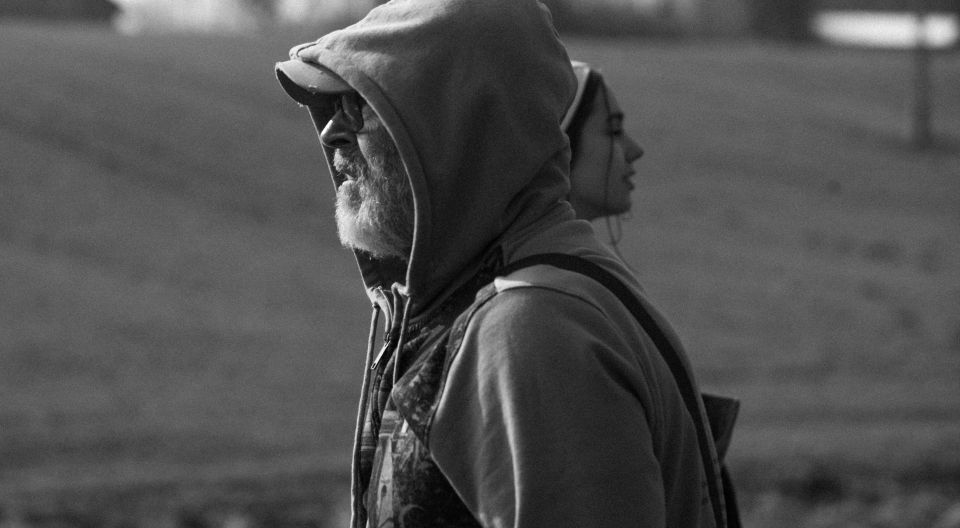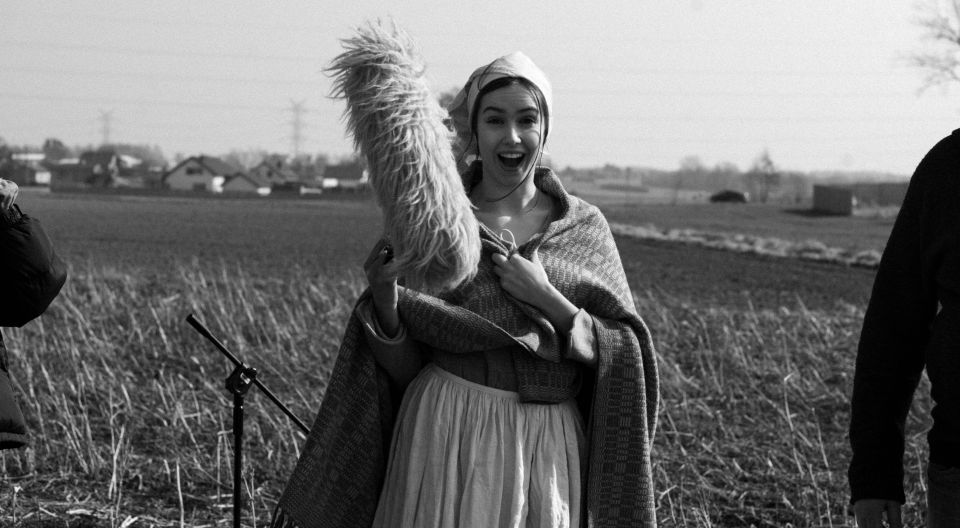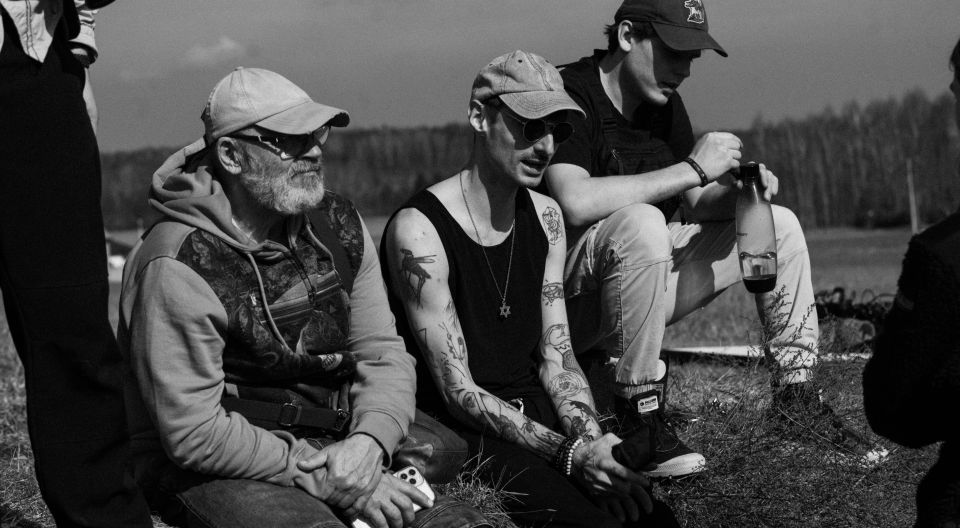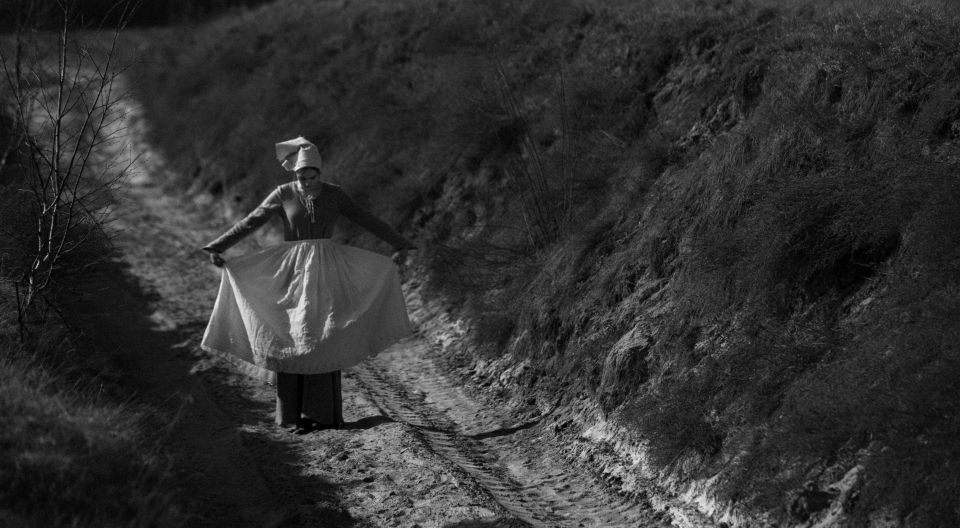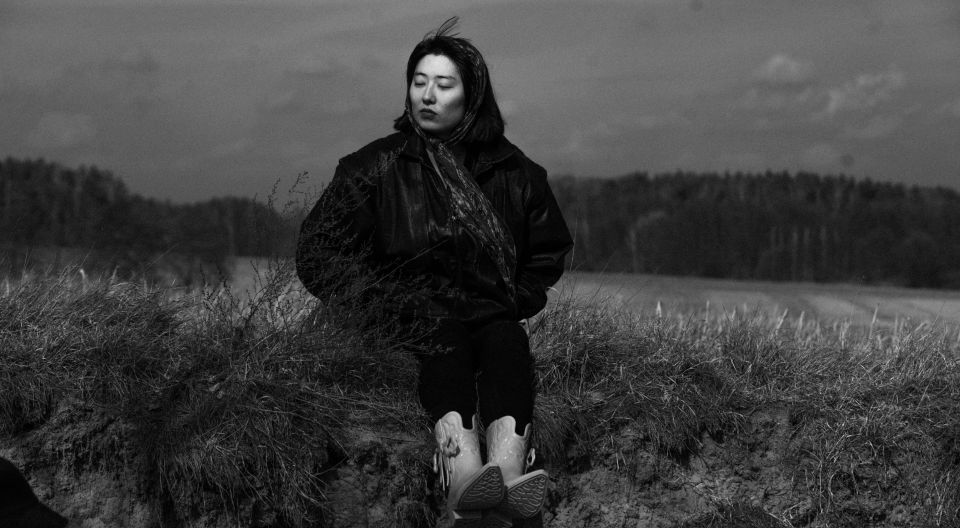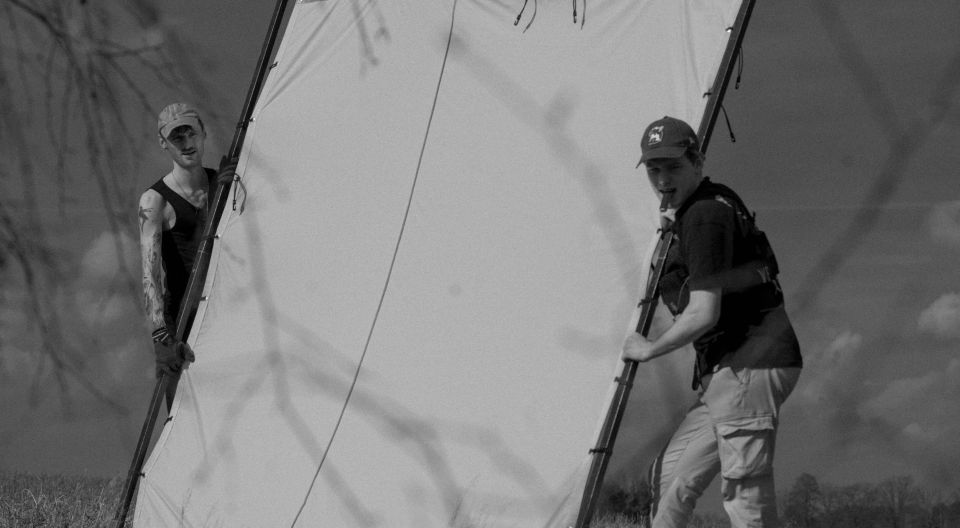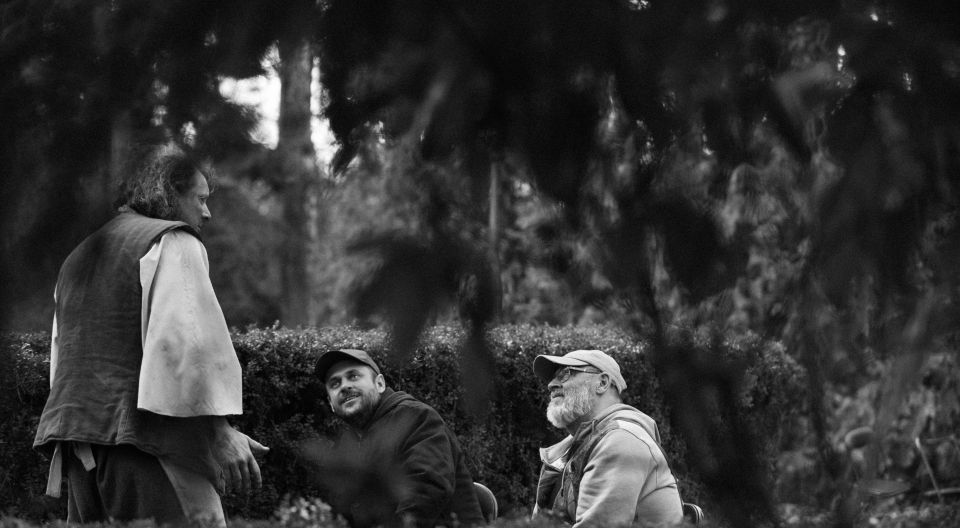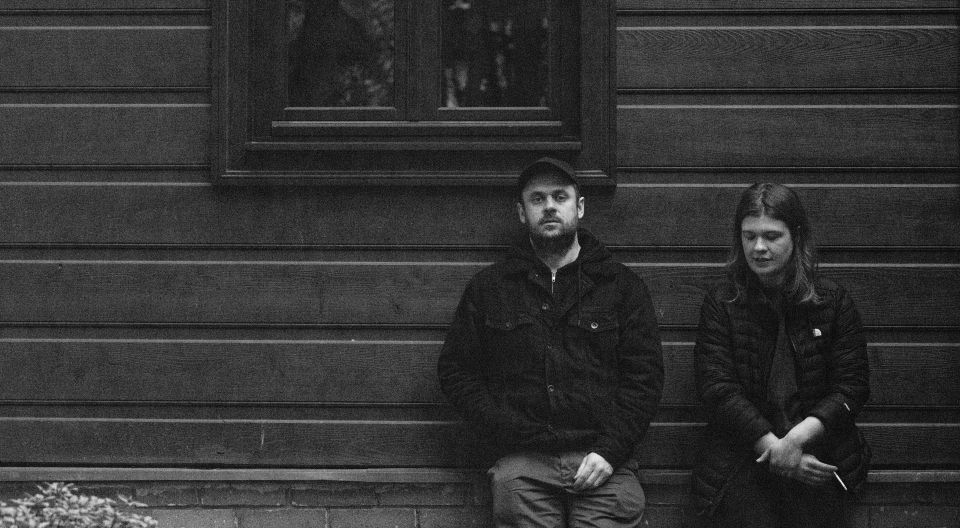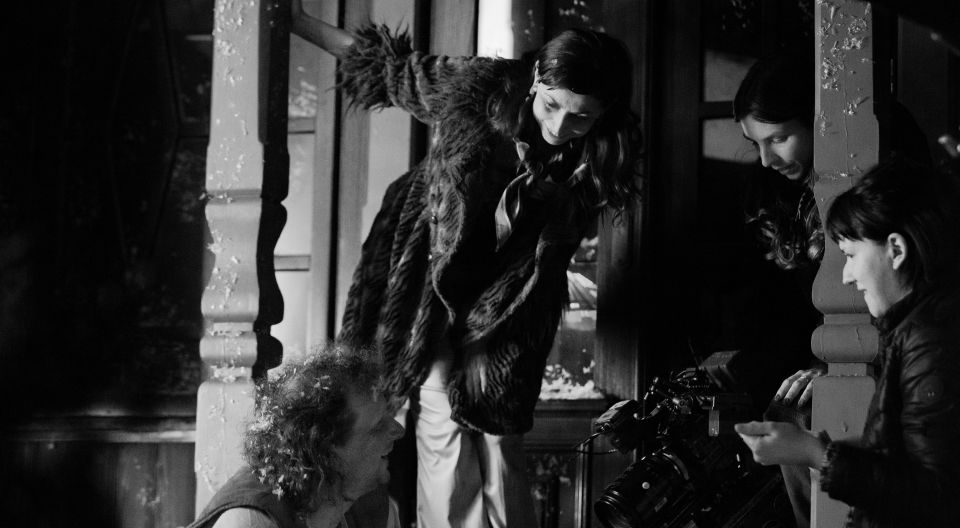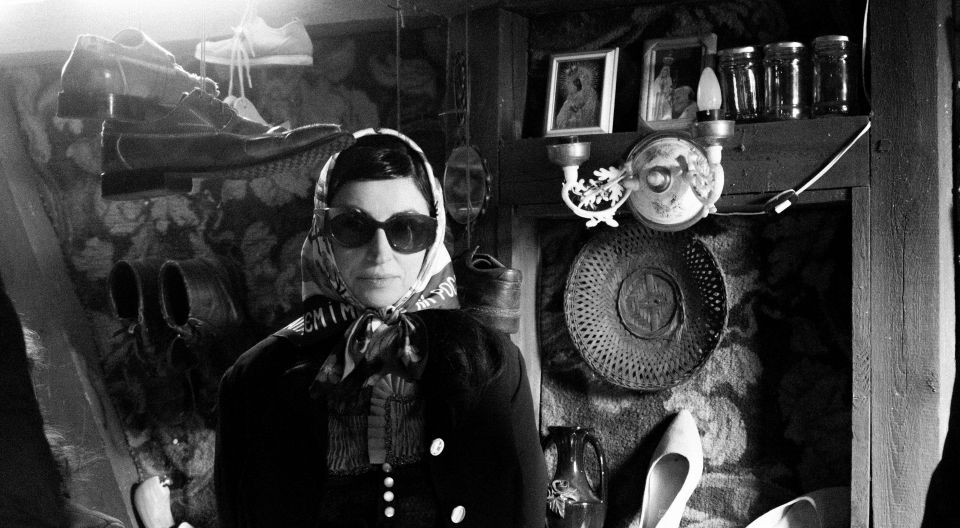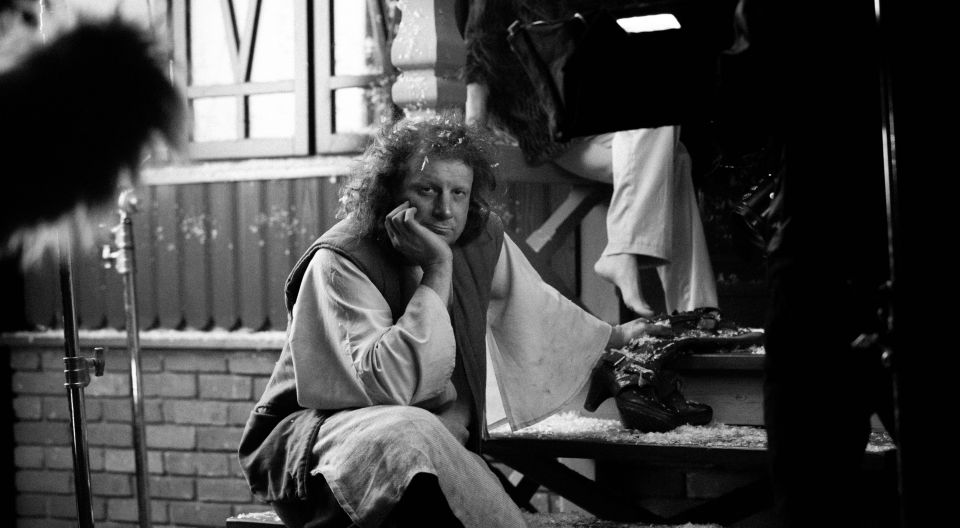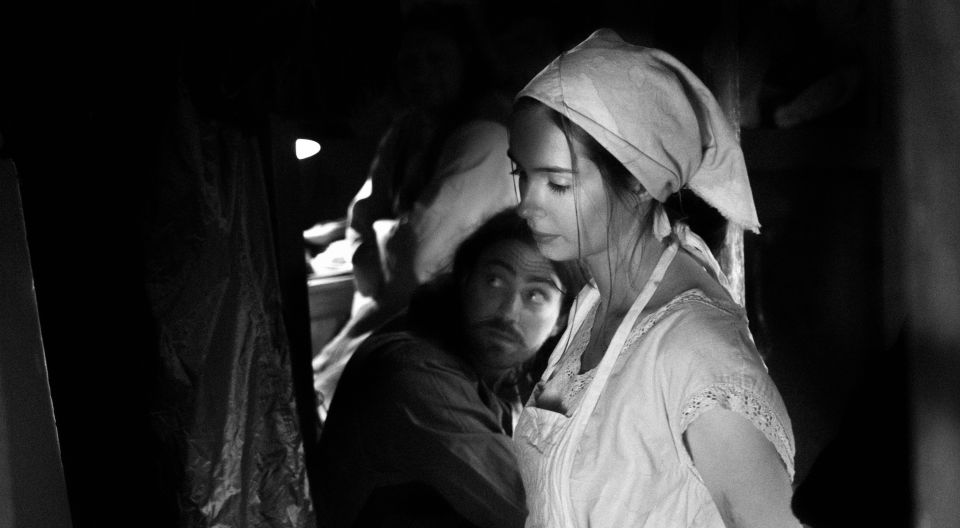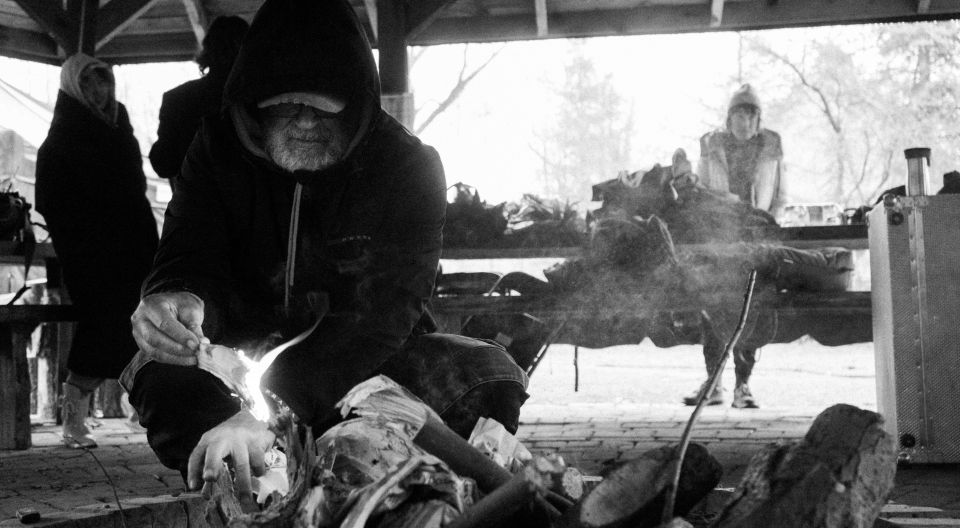25.
03.
2025.
Department
Direction
Direction
Directing workshop of fourth-year directing students - MICROWORLDS - under the supervision of Jan Jakub Kolski and Grzegorz Jaroszuk. Building relationships, practicing craft, lessons in MINDFULNESS.
This is already a good tradition of the School – the workshop of directing students under the supervision of Jan Jakub Kolski and Grzegorz Jaroszuk, during which directing students and students of other faculties and specializations at the School meet on the set. TOGETHER they make a film.
LOVE STORY is an original adaptation of a short-story by Jan Jakub Kolski from the MICROWORLDS series.
What is this film about?
In a village frozen in time, Helena and her husband, shoemaker Józek, live. One day, a woman from another world comes to the shoemaker's workshop. Helena must fight for love.
And what is the workshop about?
We talk to Jan Jakub Kolski, our lecturer, and Angelika Cygal, a directing student, co-writer and co-director of the film.
F L O W
Jolanta Karpińska – Professor, what is the goal of this workshop?
Jan Jakub Kolski – I want to make sure that students can create professional connections on the set which will make their work more effective in the future. Of course, the measure of such effectiveness is to bring as much emotion from the script and as much message as possible to the screen. It's a kind of gymnastics; you address the right person, at the right time, and say the right thing to them. What ends up on screen is the sum of many people's efforts. A film set can be oppressive, requiring many decisions to be made in a short time. They have to be ready for that. We learn from mistakes, and in this workshop we are allowed to make them. Unlike in a profession, there, mistakes have consequences. School is a place of learning, but also of brave attempts, which sometimes end in small disasters. The sum of these disasters and the corrections which fix them is the path to professional skill and self-confidence.
J.K. - What are your conclusions from this workshop - what is the strength of our students and what is a challenge and space for work? J. J. K. - Our students communicated brilliantly with the actors. They were able to develop a level of conversation that did not require them to pretend. This is proof of their talent, but also a reflection of their special human skills. In addition, they cast their craft well, and we know how important that is. The challenge was communication with the camera crew, so that the technological framework did not restrict or limit cooperation. I tried to convince students that there are various levels of communication on the set, but the most important, the most lifeblood-forming communication is between actor and director. It must be provided with the best possible conditions.
J.K. - This challenge combines craft and psychology.
J.J.K. - The word that would unite them is MINDFULNESS. You have to LOOK and LISTEN well. What opens the ears and eyes is good preparation. It reduces fear and creates a background for mindfulness. When you look well, you have a chance to notice something that you did not write in the script; an excess, a gift. Of course, you also have to be a little scared. Fear and film live in friendship. Just like love and film.
J.K. - Are you confident about our students and their career path? J.J.K. - First of all - I like them very much. On a human level, they are made of good clay. The kind that opens the way. Even if I am not yet confident about their craft, I am confident that they will be able to ask, investigate, find someone who knows the solution better and persuade them to share it.
J.K.- Students gain knowledge and experience from you. What do you gain from them?
J.J.K. - They make me realize that the world is changing significantly, in many aspects, and to keep up with it, you have to have an open mind and heart. Thanks to them, I somehow keep up, although not with everything. It is common to say that being surrounded by young people makes us younger than our age indicates, and there is something to it.
J.K. - During the workshop, students practice relationships. What is your relationship like?
J.J.K. - Many years ago, I had a habit of asking students for their student books at the beginning of the year and writing in them top marks. Then, they could decide for themselves whether they wanted to come to my classes or not. The paths to me are always open to them. When we are no longer in a formal relationship, i.e. at school, in a teacher-student relationship, they can always come back to me, like to an older colleague, ask, seek advice. This is my offer to them. I have experienced that what I give comes back to me enlarged... They keep me ready, help me in constantly renewing my covenant with the world. This is the flow.
N O T A R A C E
Jolanta Karpińska - Angelika, what was this workshop for you? What was its main challenge?
Angelika Cygal – As a group we had to manage the entire crew and have a positive impact on their work. Reconciling the imagination of all the directors involved in the project with what is good for the drama of the film and making clear choices which move the entire production forward was one of the biggest challenges for us. It was quite a cool lesson to realize once again that the film is not about our SELF, but about the story that the audience will watch.
J.K. - What was unique about this job?
A.C. - The idea for the film pushed us towards technological solutions which we had not had the opportunity to try in our short films (such as enlarging the character played by Marta Ojrzyńska to gigantic dimensions). Our assumption was to create an original world in which a futuristic city exists next to a village frozen in time. Creating such a "world of our own" requires very precise rules understood by the authors and work on making the viewer understand what game we are playing with them.
J.K. – LOVE STORY. What kind of story will this be, what kind of film will this be?
A.C. - It's a story about growing into love. The main character, after changing herself, could truly love and be loved. I always asked myself after reading this script - if the character had to change for love to happen - was it really love? Do conscious actions destroy the magical selflessness of feelings?
J.K. – You built this "world of yours" among colleagues, but also under the supervision of lecturers, filmmakers who are eager to share their knowledge, experience and declare their help. What does it mean to you?
A.C. - The exchange of energy between creators is very important to not get stuck in your own beliefs. Knowing that as students and maybe future directors working in the industry we can count on the help of more experienced creators somehow fills us with the feeling that we are not participating in some unpleasant race. Besides, I think that being good to other people is the basis of credibility for a director, a creator.
LOVE STORY
screenplay based on the short-story "Szewska miłość" by Jan Jakub Kolski: Angelika Cygal, Katarzyna Kosajda
direction: Jun Akagawa, Gor Arushanyan, Karolina Biesiacka, Angelika Cygal, Klaudia Fortuniak, Katarzyna Kosajda, Aneta Ptak, Paulina Sikora, Aico Tan, Varvara Zarytska
cinematography: Martyna Wróbel and Juri Walcher
cast: Marta Ojrzyńska, Antonina Swoboda, Wojciech Solarz, Jędrzej Matwijów, Gor Arushanyan,
editing: Julia Kharybina
sound on the set: Marcin Zalewski, Robert Marczak
production design: Ewa Klimek, Tatiana Kościelniak, Bartek Stankiewicz
costumes: Jakub Kępka
costume design collaboration: Paulina Sikora
make-up: Ewa Sicińska, Agata Stefaniak
production management: Gabriela Chudzik, Szymon Hliniak, Maria Posiadało
set manager: Oskar Ciesielski
casting: Karolina Biesiacka, Klaudia Fortuniak
intimate scenes coordinator: Marcjanna Lelek
second unit cinematographer: Mateusz Gołębiewski
camera assistant/focus puller: Emilian Szopa, Michał Majewski, Maciej Ułamek,
lighting manager: Piotr Buźniak
lighting technicians: Franciszek Bednarczyk, Vladyslav Apanasenko, Tomasz Stępniak, Mateusz Stępień, Artur Wiecha
vfx effects: Aleksander Kropidłowski
vfx effects cooperation: Aneta Ptak, Łukasz Depczyk
drone operator: Ksawery Synak
steadicam operator: Paweł Traczyk
drivers: Sławomir Gula, Piotr Kowalik, Andrzej Ogórkowski
artistic supervision: Jan Jakub Kolski, Grzegorz Jaroszuk
production supervision: Agata Golańska
The filming took place in Tworzyjanki near Brzeziny and Kalinowo near Głowno.
The filmmakers would like to thank everyone who supported the project.
SEE PRODUCTION PHOTOS BY ANGELIKA CYGAL.
LOVE STORY is an original adaptation of a short-story by Jan Jakub Kolski from the MICROWORLDS series.
What is this film about?
In a village frozen in time, Helena and her husband, shoemaker Józek, live. One day, a woman from another world comes to the shoemaker's workshop. Helena must fight for love.
And what is the workshop about?
We talk to Jan Jakub Kolski, our lecturer, and Angelika Cygal, a directing student, co-writer and co-director of the film.
F L O W
Jolanta Karpińska – Professor, what is the goal of this workshop?
Jan Jakub Kolski – I want to make sure that students can create professional connections on the set which will make their work more effective in the future. Of course, the measure of such effectiveness is to bring as much emotion from the script and as much message as possible to the screen. It's a kind of gymnastics; you address the right person, at the right time, and say the right thing to them. What ends up on screen is the sum of many people's efforts. A film set can be oppressive, requiring many decisions to be made in a short time. They have to be ready for that. We learn from mistakes, and in this workshop we are allowed to make them. Unlike in a profession, there, mistakes have consequences. School is a place of learning, but also of brave attempts, which sometimes end in small disasters. The sum of these disasters and the corrections which fix them is the path to professional skill and self-confidence.
J.K. - What are your conclusions from this workshop - what is the strength of our students and what is a challenge and space for work? J. J. K. - Our students communicated brilliantly with the actors. They were able to develop a level of conversation that did not require them to pretend. This is proof of their talent, but also a reflection of their special human skills. In addition, they cast their craft well, and we know how important that is. The challenge was communication with the camera crew, so that the technological framework did not restrict or limit cooperation. I tried to convince students that there are various levels of communication on the set, but the most important, the most lifeblood-forming communication is between actor and director. It must be provided with the best possible conditions.
J.K. - This challenge combines craft and psychology.
J.J.K. - The word that would unite them is MINDFULNESS. You have to LOOK and LISTEN well. What opens the ears and eyes is good preparation. It reduces fear and creates a background for mindfulness. When you look well, you have a chance to notice something that you did not write in the script; an excess, a gift. Of course, you also have to be a little scared. Fear and film live in friendship. Just like love and film.
J.K. - Are you confident about our students and their career path? J.J.K. - First of all - I like them very much. On a human level, they are made of good clay. The kind that opens the way. Even if I am not yet confident about their craft, I am confident that they will be able to ask, investigate, find someone who knows the solution better and persuade them to share it.
J.K.- Students gain knowledge and experience from you. What do you gain from them?
J.J.K. - They make me realize that the world is changing significantly, in many aspects, and to keep up with it, you have to have an open mind and heart. Thanks to them, I somehow keep up, although not with everything. It is common to say that being surrounded by young people makes us younger than our age indicates, and there is something to it.
J.K. - During the workshop, students practice relationships. What is your relationship like?
J.J.K. - Many years ago, I had a habit of asking students for their student books at the beginning of the year and writing in them top marks. Then, they could decide for themselves whether they wanted to come to my classes or not. The paths to me are always open to them. When we are no longer in a formal relationship, i.e. at school, in a teacher-student relationship, they can always come back to me, like to an older colleague, ask, seek advice. This is my offer to them. I have experienced that what I give comes back to me enlarged... They keep me ready, help me in constantly renewing my covenant with the world. This is the flow.
N O T A R A C E
Jolanta Karpińska - Angelika, what was this workshop for you? What was its main challenge?
Angelika Cygal – As a group we had to manage the entire crew and have a positive impact on their work. Reconciling the imagination of all the directors involved in the project with what is good for the drama of the film and making clear choices which move the entire production forward was one of the biggest challenges for us. It was quite a cool lesson to realize once again that the film is not about our SELF, but about the story that the audience will watch.
J.K. - What was unique about this job?
A.C. - The idea for the film pushed us towards technological solutions which we had not had the opportunity to try in our short films (such as enlarging the character played by Marta Ojrzyńska to gigantic dimensions). Our assumption was to create an original world in which a futuristic city exists next to a village frozen in time. Creating such a "world of our own" requires very precise rules understood by the authors and work on making the viewer understand what game we are playing with them.
J.K. – LOVE STORY. What kind of story will this be, what kind of film will this be?
A.C. - It's a story about growing into love. The main character, after changing herself, could truly love and be loved. I always asked myself after reading this script - if the character had to change for love to happen - was it really love? Do conscious actions destroy the magical selflessness of feelings?
J.K. – You built this "world of yours" among colleagues, but also under the supervision of lecturers, filmmakers who are eager to share their knowledge, experience and declare their help. What does it mean to you?
A.C. - The exchange of energy between creators is very important to not get stuck in your own beliefs. Knowing that as students and maybe future directors working in the industry we can count on the help of more experienced creators somehow fills us with the feeling that we are not participating in some unpleasant race. Besides, I think that being good to other people is the basis of credibility for a director, a creator.
LOVE STORY
screenplay based on the short-story "Szewska miłość" by Jan Jakub Kolski: Angelika Cygal, Katarzyna Kosajda
direction: Jun Akagawa, Gor Arushanyan, Karolina Biesiacka, Angelika Cygal, Klaudia Fortuniak, Katarzyna Kosajda, Aneta Ptak, Paulina Sikora, Aico Tan, Varvara Zarytska
cinematography: Martyna Wróbel and Juri Walcher
cast: Marta Ojrzyńska, Antonina Swoboda, Wojciech Solarz, Jędrzej Matwijów, Gor Arushanyan,
editing: Julia Kharybina
sound on the set: Marcin Zalewski, Robert Marczak
production design: Ewa Klimek, Tatiana Kościelniak, Bartek Stankiewicz
costumes: Jakub Kępka
costume design collaboration: Paulina Sikora
make-up: Ewa Sicińska, Agata Stefaniak
production management: Gabriela Chudzik, Szymon Hliniak, Maria Posiadało
set manager: Oskar Ciesielski
casting: Karolina Biesiacka, Klaudia Fortuniak
intimate scenes coordinator: Marcjanna Lelek
second unit cinematographer: Mateusz Gołębiewski
camera assistant/focus puller: Emilian Szopa, Michał Majewski, Maciej Ułamek,
lighting manager: Piotr Buźniak
lighting technicians: Franciszek Bednarczyk, Vladyslav Apanasenko, Tomasz Stępniak, Mateusz Stępień, Artur Wiecha
vfx effects: Aleksander Kropidłowski
vfx effects cooperation: Aneta Ptak, Łukasz Depczyk
drone operator: Ksawery Synak
steadicam operator: Paweł Traczyk
drivers: Sławomir Gula, Piotr Kowalik, Andrzej Ogórkowski
artistic supervision: Jan Jakub Kolski, Grzegorz Jaroszuk
production supervision: Agata Golańska
The filming took place in Tworzyjanki near Brzeziny and Kalinowo near Głowno.
The filmmakers would like to thank everyone who supported the project.
SEE PRODUCTION PHOTOS BY ANGELIKA CYGAL.
